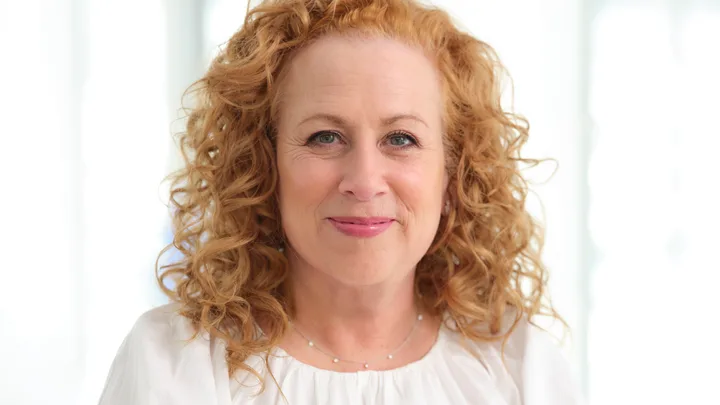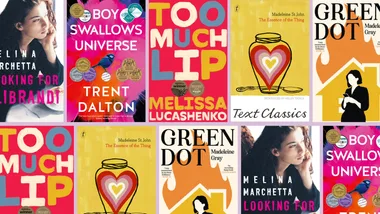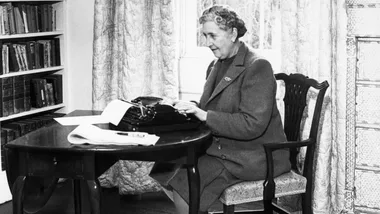Bestselling author Jodi Picoult is chuckling ruefully. Her laughter comes rumbling through the screen from her study in New York where a copy of her book, By Any Other Name, is on display. The title, printed in white, is taken from one of the most famous lines in the Shakespearean canon. But its meaning has been altered by a change in emphasis. The last seven letters “her name” are coloured pink. The tagline teases that it is “her most controversial novel yet”.
Jodi, who has probed abortion, neo-Nazism, suicide pacts and saviour siblings, is taking on the question of Shakespearean authorship. She suggests that many of The Bard’s most beloved plays, including Romeo and Juliet, were in fact written by England’s first published female poet, Emilia Bassano. In doing so, she is knowingly straying into the realm of literary heresy, and she looks delighted.
“I think it’s fun to look at what the actual facts are and imagine what kind of person would actually do these things,” she says. Asked if the premise of her latest novel is a creative exercise or a literary exposé, she answers with a sly grin. “Can it be both?”
“It started out really as a red flag that was raised for me through someone else’s research,” Jodi continues.
She was reading Elizabeth Winkler’s 2019 article Was Shakespeare a Woman? which put forward Emilia as an alternative to the glover’s son from Stratfordupon-Avon as the author of Shakespeare’s writing.

The piece went viral. Elizabeth was dismissed as a conspiracy theorist and lumped in with Holocaust deniers and anti-vaxxers. However, as Jodi read her words, a deep recognition stirred inside her. Over the course of her 32-year writing career, she has sold more than 40 million books. Despite that, there have been times when her work, as “women’s writing”, has been consigned to a lesser, domestic realm. Elizabeth’s case for Emilia Bassano struck a chord.
“The authorship question has been around for years, and most professors just gloss right over it because people don’t want to accept the fact that anyone apart from Shakespeare wrote these plays,” says Jodi, who studied English at Princeton. She’d never given the question much thought until one fact in Elizabeth’s article “stopped me dead”.
“Shakespeare had two surviving daughters that he didn’t teach to read or write,” she says, growing loud with incredulity. “I was like: Okay! Wait-wait-wait-wait. The guy who wrote these plays with these incredible women – Beatrice, Rosalind, Katherine, Portia – you cannot tell me he wouldn’t have educated his own daughters?”
The more she read about the life of Emilia Bassano, the more coincidences she encountered. At the same time, she began to understand just how much the myth of Shakespeare is, in fact, a myth.
“Even if you go to Stratford and you visit his birthplace, they say things like, ‘We don’t actually know if he was born here but it would have probably looked like this.’ There actually isn’t the proof that people seem to want to sink their teeth into,” she says.
Jodi always says her books start with a question – what if? Her research had led her to a new question that few would dare ask: What if Shakespeare was a woman?

Emilia Bassano was born into a musical family. Her father played recorder for Queen Elizabeth I which, Jodi says, is significant. “There are more musical references in Shakespeare’s plays than any others, although he didn’t play an instrument,” she wrote in her newsletter to readers.
In Hamlet, which features a conversation about recorders, there is a play on words involving a specific type of instrument. “It is the smallest recorder a human can play. Now, that is absolutely something Emilia’s family would have been aware of.”
Hamlet is significant in Jodi’s argument for other reasons. It is set in Denmark and while there is no evidence Shakespeare ever left England. However, when Emilia was 12 she spent a year under the care of England’s ambassador to Denmark.
“She’s really too young to stay home by herself and either this man dragged her along with him to his diplomatic missions, or at the very least he comes home and tells her about them. And where does he actually go that summer? Well, on behalf of Queen Elizabeth, he goes to the court of Denmark.”
The summer the ambassador was at the Danish court, astronomer Tycho Brahe was there, along with his cousins Rosencrantz and Guildenstern. Tycho’s astronomy features throughout the works of Shakespeare. Rosencrantz and Guildenstern are, of course, characters in Hamlet.

After Emilia’s time with the ambassador, she was sold as a mistress to Lord Hunsdon, who was responsible for London’s theatres.
“Every single play that was performed would cross his desk to be read to make sure there wasn’t anything treasonous in the content. He would have gone to plays, known all the playwrights and had access to rehearsals by companies. As would anyone living with him, presumably,” Jodi wrote to readers.
After 10 years, Emilia became pregnant and Lord Hunsdon paid Emilia’s cousin, Alfonso Lanier, to marry her. It was an unhappy and violent marriage and, Jodi believes, sowed the seeds for the play that would become The Taming of the Shrew. The way Emilia was passed from one man to another like chattel tells us a lot about the status of women at the time. Women were not allowed to write for the stage and, before Shakespeare, were not well-represented in plays.
“Shakespeare is really the first time … we see this three-dimensionality of women in a work of fiction that is not just there to be an accessory to whatever male is speaking,” Jodi says.
Emilia Bassano is believed by some to have been Shakespeare’s mistress. Jodi rejects this. She suggests Emilia’s relationship with Shakespeare was purely professional. Emilia wrote plays, Shakespeare sold them under his name, and they split the profit.
“I really think certain stories seem to be crying out to be heard and they’re the ones that have very strong female characters,” Jodi says. “Characters who have to pretend to be men to get noticed or heard.”
Jodi poses another question: Why did Shakespeare start writing Italian wedding comedies?

“The town where Emilia’s family is from, Bassano del Grappa, Italy, is this tiny little nothing town in the middle of nowhere. There are two apothecaries in the town and one is called The Moor, the other is run by a man named Otello.
“And, you know, [there’s a substantial] difference between the first quarto version of Othello and the folio version, which changes after Shakespeare’s death. One hundred and sixty-one lines are added that we know he didn’t write. He was dead. So, someone did.”
The majority of the new lines go to a character called Emilia. And an early version of The Taming of the Shrew featured characters named Emilia and Alfonso. “I think she hid herself a little because that was one of the earliest plays. She could not be found out so she left her fingerprint as subtly as she could,” Jodi says.
For such a prominent and prolific writer, surprisingly little is known about William Shakespeare. Jodi references his tax evasion and the fact that he was fined for hoarding barley during a famine.
“For me, what I got from reading the facts about Shakespeare was that he was just really not a fantabulous guy. He was not a good person. I think he was a businessman first and foremost. I think he was really good at making a buck and that’s what he wanted to do,” she says.
She has written about the absence of documents tying Shakespeare to the creation of his plays. “In his will, he left behind many assets … but not a single book or manuscript.”
Jodi has also discovered – as Elizabeth Winkler did – that the Shakespeare authorship question is taboo.

“It is truly a religion because, when you start poking holes in authorship, you reach a wall that’s like a wall of faith. And the answer becomes ‘He did write them’,” Jodi says.
Other prominent voices have questioned Shakespeare’s authorship. In 1909 Mark Twain wrote a book called Is Shakespeare Dead? He didn’t think Shakespeare had the education to write plays which contained detailed legal matters. Henry James and Sigmund Freud were also Shakespeare’s sceptics.
“Frankly, I do think that many people were the authors of Shakespeare’s plays,” Jodi says. “I think Emilia was one of them … I don’t think she wrote the history plays. Her life does not intersect with that.”
To underscore Jodi’s argument By Any Other Name includes a contemporary character working in the New York theatre scene. This storyline “brings up the fact that not much has changed for women in 400 years – that we are still fighting to be heard and that the gatekeepers are still men,” she says.
About 10 years ago, Jodi adapted a coming-of-age book, Between the Lines, – written with her daughter – for the stage. Repeatedly they were told, “Nobody cares. It’s too small. Nobody needs to see a girl’s coming-of-age story. Nobody’s going to buy a ticket for that.”
It took Jodi eight years to get her story on the stage. “At the time this is going on, we have Dear Evan Hansen and Be More Chill, two boys’ coming-of-age stories down the block from each other and nobody bats an eye.”
The lead-up to Jodi’s latest release has been busy. While conjuring up two characters whose voices are being stifled, Jodi has been condemning book bans in the US. She has become a grandmother, and last year interviewed Sarah Ferguson, Duchess of York, who has co-written a Harlequin romance novel. The Duchess was open and funny, Jodi says, and she observes that Sarah Ferguson is another female storyteller who has been made to feel her voice isn’t worthy.

“We were sitting on stage, having tea together … and I thought, she’s not often treated like a writer,” Jodi says. “But she is. She’s coming up with stories. Her co-writer helps her get them down on paper, but these are her stories, and I think being asked serious questions the way I would have asked another writer, she just really liked it.
“We also then got her to talk about her relationship with the Queen and Princess Diana. I was talking about things I wasn’t supposed to. But she was so comfortable that she was really open … it was a really fun event.”
The Duchess enjoyed herself so much, she asked for Jodi’s number. “We keep texting, which is really nice. She’s really lovely,” Jodi says.
Given she was about to plunge into the world of English court life, The Weekly asks, did Jodi speak to the Duchess about England’s upper class? She didn’t. “It was a very different world, Elizabethan England. I like to think things are different these days.”
But perhaps not that different?
“You’re going to believe whatever you want about Shakespeare, I’m not going to be able to convince you,” Jodi says. “What I’m going to do with this book is provide you with all the facts and let you make up your own mind.”
By Any Other Name, by Jodi Picoult, Allen & Unwin, is on sale now.
This article originally appeared in the August 2024 issue of The Australian Women’s Weekly. Pick up the most recent issue at your local newsagent or subscribe so you never miss an issue!



